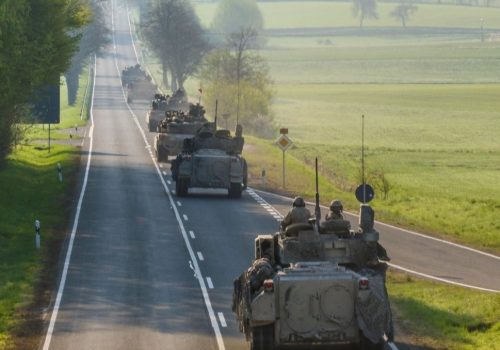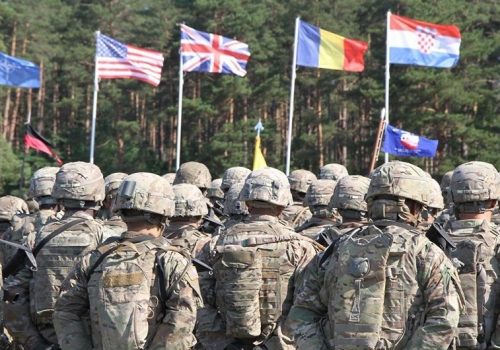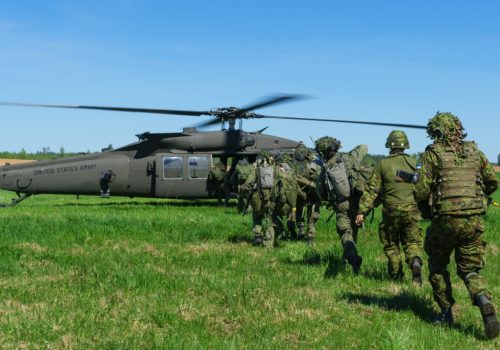Falling in: The deterrent value of Host Nation Support in the Baltic Sea region
Since 2014 the United States and NATO have undertaken tremendous efforts to enhance deterrence in the Baltic sea region. Complimenting improvements made by the Baltic states themselves, NATO’s Enhanced Forward Presence and the United States’ European Deterrence Initiative both bring persistent allied presence to the region and demonstrate the Alliance’s resolve in the face of continued Russian aggression. Yet these deployments would not be possible without the robust Host Nation Support provided by Lithuania, Latvia, and Estonia.
While newspaper headlines and think tank publications often suggest analyzing NATO deterrence in the Baltic states in terms of raw firepower—how many tanks, how many surface-to-air missiles, how many soldiers are present in the region—the role of support from the Baltic states themselves is often overlooked. This Host Nation Support (HNS), the civil and military assistance provided to allied forces located on or transiting a nation’s territory, underpins Allied presence and, though difficult to quantify, has real deterrent value as well. Without adequate HNS, all of the other elements contributing to NATO defense and deterrence in the Baltic states could not carry out their mission, NATO’s strategy of deterrence by reinforcement would be defeated before it even could be implemented in a crisis, and the Baltic states would find themselves even more vulnerable to Russian aggression.
In Falling in: The deterrent value of Host Nation Support in the Baltic Sea region, lead authors Kathleen McInnis and Connor McPartland examine how HNS supporting NATO and US deployments to the region dramatically enhances the capability and credibility of the deterrent posture in the Baltic states—enabling key capabilities such as tanks, fighter aircraft, and electronic warfare units to be on NATO’s frontlines on a sustained basis while maintaining a high degree of readiness. The authors then assess the HNS necessary to support the Alliance’s strategy of rapid reinforcement to the region in the event of a crisis and offer a series of recommendations to policy planners in the Baltic states, at NATO, and in the United States for how to continue to improve this vital component of deterrence.
Click the link above to download the full report or read online below.
Subscribe for events and publications on European security
Sign up for updates from the Atlantic Council’s Transatlantic Security Initiative, covering the debate on the greatest security challenges facing the North Atlantic Alliance and its key partners.
Related content

The Transatlantic Security Initiative, in the Scowcroft Center for Strategy and Security, shapes and influences the debate on the greatest security challenges facing the North Atlantic Alliance and its key partners.

The Transatlantic Security Initiative, in the Scowcroft Center for Strategy and Security, shapes and influences the debate on the greatest security challenges facing the North Atlantic Alliance and its key partners.
Image: Abrams Tanks are parked in a line on a range before a nighttime section gunnery at the Pabrade Training Area, Lithuania, on Jan. 22, 2021. The tank crews, along with Bradley Fighting Vehicle and mortar sections, completed the gunnery to test the skills of sections to effectively fire the platforms and react to the various scenarios often experienced on the battlefield. (U.S. Army photo by Sgt. Alexandra Shea)


